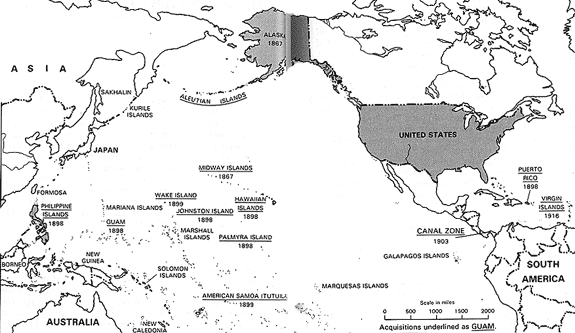|
|
|
|
Empire Without Tears: America's Foreign Relations 1921-1933
Temple University Press
1987
Introduction
In the quarter of a century preceding Warren G. Harding's inauguration as president of the United States, his country had emerged as a great power. It was a nation whose influence spread rapidly throughout the world. It controlled an empire that included not only the Caribbean basin, but stretched across the Pacific, north and south, through Hawaii and Alaska, Midway, Wake, Guam, Samoa, and the Aleutians, to East Asia and the Philippines. Manufacturers nurtured markets and sired multinational corporations in Europe, while mining and lumber interests scoured North and South America. American entrepreneurs and missionaries wandered across the Middle East, South Asia, and Africa. It was the dawning of what Henry Luce would later call the "American Century."
Although the United States was slow to develop military power commensurate with its industrial capacity, it did indicate a willingness to test its might. At the turn of the century Americans fought a war with Spain in which military units operated successfully in two oceans. American troops stationed in the Philippines engaged in a bitter struggle against Filipinos who preferred freedom to Yankee rule and participated in an international expedition against China in 1900. In the years that followed, the United States maintained military garrisons and naval units in the Philippines, China, Hawaii, and in its rapidly acquired Caribbean protectorates. President Theodore Roosevelt sent the Great White Fleet around the world, and the nation participated in an increasing number of international conferences, reflecting expanding interests and concerns Ultimately in the strongest testimony to their growing involvement in world affairs, Americans went to war in Europe in 1917.
The American Empire in the 1920s

Prior to 1917, despite the efforts of publicists like Brooks Adams and Alfred Thayer Mahan, despite Roosevelt's use of his "bully pulpit," few Americans were aware of the impact of the world on their country or their country's role in the world. The world war shattered popular complacency and engaged mass attention. From 1914, certainly from 1917 to 1919, more Americans were concerned about what was happening in Europe than ever before. The government of the United States became more deeply occupied with international affairs than likely or even possible in time of peace. The American military establishment grew enormously, and its power was projected overseas. American financial power grew enormously as the United States was transformed from debtor to creditor nation and as the financial center of the world passed from London to New York. As new vistas beckoned from all directions, Woodrow Wilson chose to commit the United States to the League of Nations-to a permanent and leading role in world politics, consistent with the nation's power, prestige, and interests.
In Washington, the United States Senate failed to muster the two thirds vote necessary to ratify the Treaty of Versailles and bring the United States into the League—although majority support was available even in the Senate. Rejection of the Treaty of Versailles and lack of membership in the League had little impact, however, on American involvement in world affairs in the decade that followed. In the 1920s the United States was more profoundly engaged in international matters than in any peacetime era in its history. The empire was maintained, with minor modifications in the Caribbean and China. Military power, as is usual in the absence of war or serious threat, declined-but never to prewar levels. Financial power, on the other hand, grew at nearly geometric rates, and the dollar, if not the flag, could be found wherever the sun might shine at any given moment.